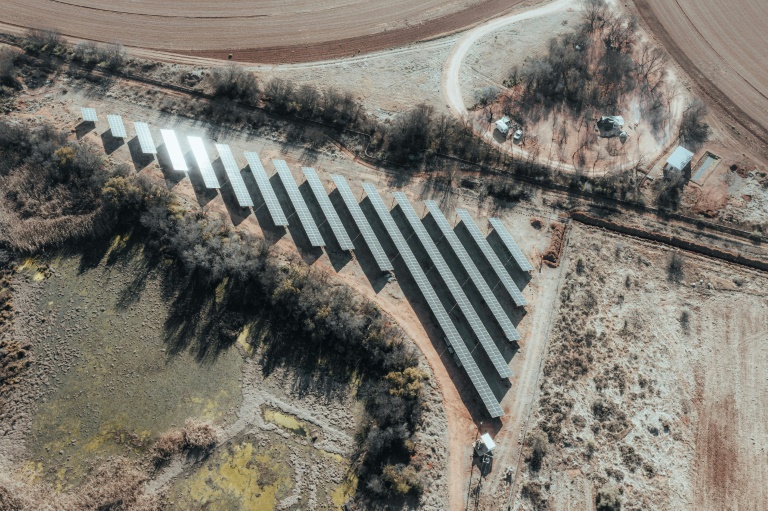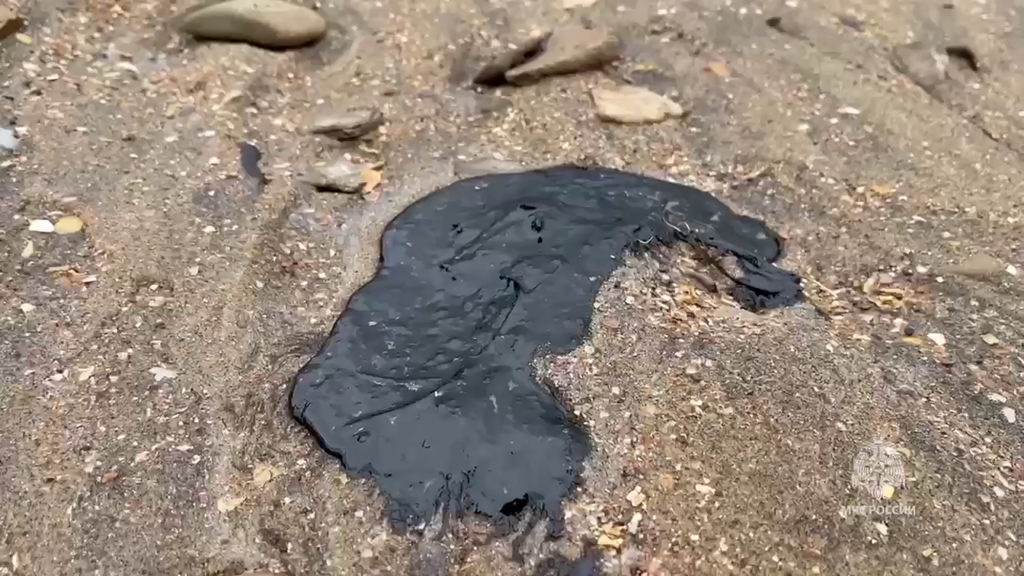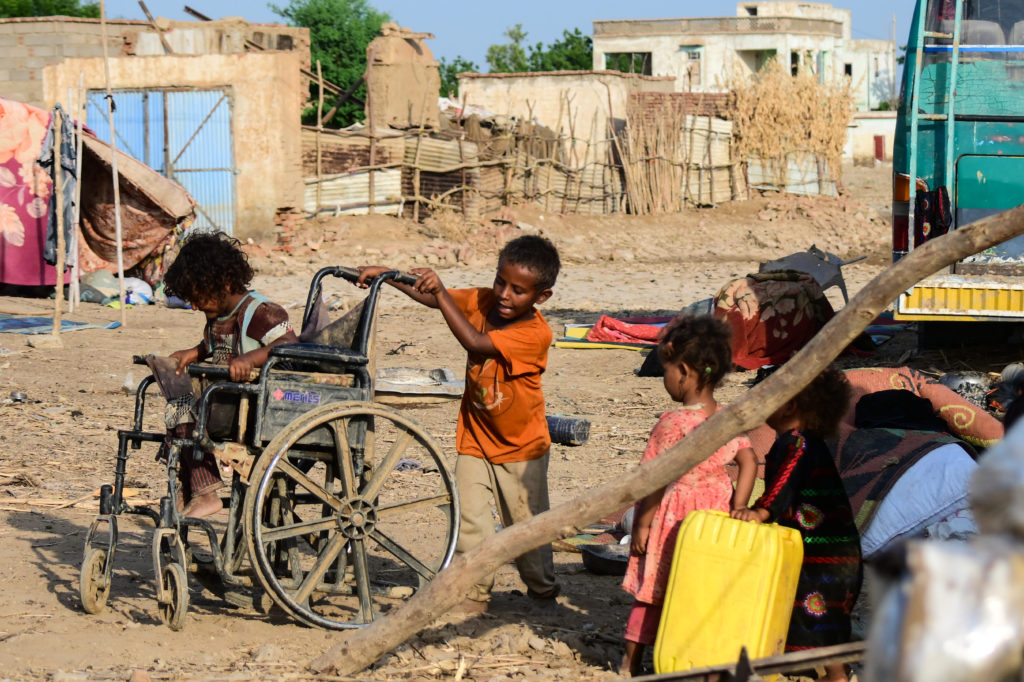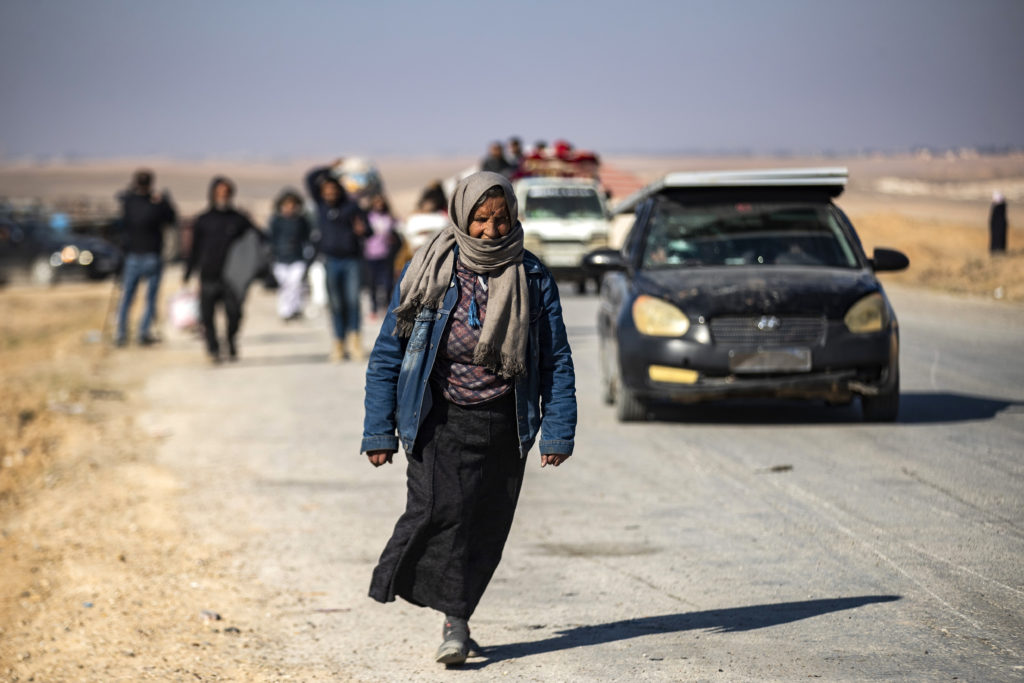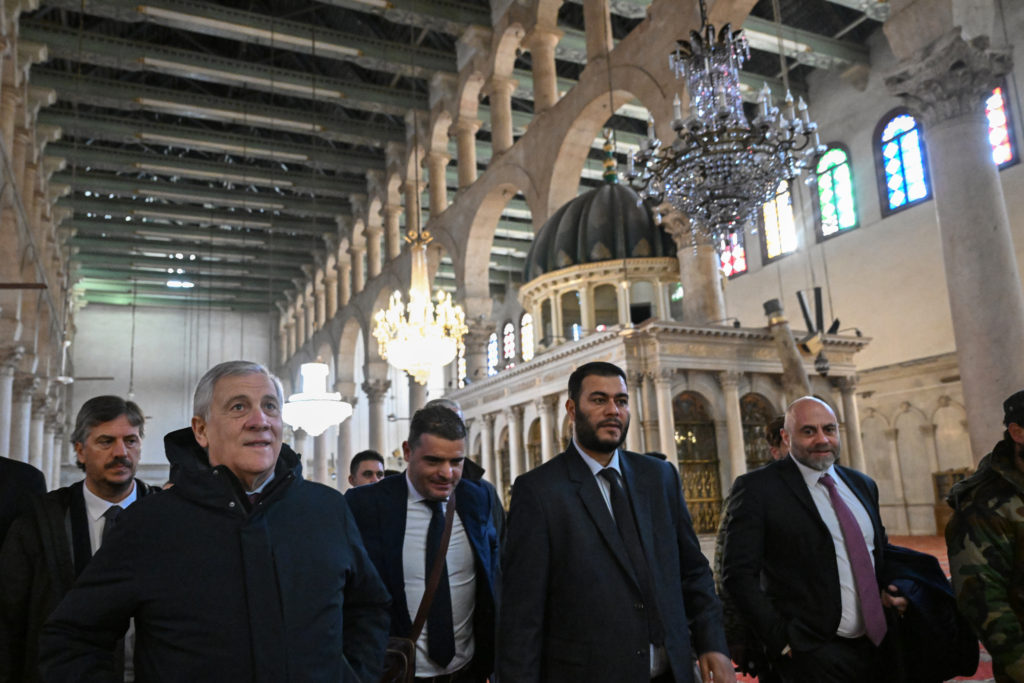Most of South Africa is battling endless power cuts, but a remote whites-only farming town in the country’s sun-drenched centre is close to producing enough electricity to be self-sufficient.
Built after the end of apartheid along the Orange River on 8,000 hectares (more than 19,000 acres) of land acquired by white Afrikaner nationalists, Orania manages its affairs autonomously from the central government.
At the end of a gravel track outside the 31-year-old town, a diamond mesh gate opens onto hundreds of photovoltaic panels mounted in rows.
In a country struggling to provide basic services, the small settlement of 2,500 people is the only town nationwide close to reaching energy supply autonomy and freeing itself from the failing national power grid.
“The solar farm is quite a huge game changer for us. It brings energy sustainability to the town,” said Gawie Snyman, 43, who manages the municipality.
“Our big dream is to become an energy exporter”.
Africa’s most developed economy has in recent years been plagued by epileptic power supply, which many blame on the ageing coal-fired plants operated by the state-owned energy giant Eskom.
After weeks of some of the worst blackouts in recent years, President Cyril Ramaphosa on Monday announced energy reforms, urging South Africans to “join in a massive rollout of rooftop solar” and sell excess to the grid.
Orania, a town some 620 kilometres (380 miles) southwest of Johannesburg, was already well on its way to becoming totally energy independent in just several years’ time.
– Solar independence –
Established in 1991 after the abolition of the racial laws, Orania is protected under South Africa’s constitution, which ensures the right to self-determination.
The town was developed on land acquired by a group of Afrikaner families, led by the son-in-law of Hendrik Verwoerd, the architect of apartheid.
It was set up to preserve the “culture” of the Afrikaners — descendants of the Dutch and French-Huguenot Protestant settlers who came to South Africa in the 17th century.
Prospective residents of Orania submit an application, get vetted and the default requirement is one has to be Afrikaner.
Town spokesman Joost Strydom, 28, said the town in the Karoo region now aimed to make the best of year-round sunshine in order to enjoy “total electricity independence”.
With funding from the municipality and private investors, Orania started building its 10.5-million-rand ($620,000) solar farm in June last year.
Just 12 months later, the town was generating 841 KW of electricity per hour — almost enough to power half the town and surrounding farms growing corn, wheat and nuts, local authorities say.
“It was the basic idea of self-sufficiency that drove us towards doing this,” said Francois Joubert, the engineer who designed what has become known as the “Orasol” plant.
Standing next to a row of solar panels, the 69-year-old in a grey flat cap said Eskom had “failed dismally” to provide the town with the necessary power.
“You can’t rely on anybody to supply you with basic ingredients to live here in the Karoo,” he said.
“We had to do that ourselves, we had to work it out… And it’s working for us.”
– Thirsty pecans –
A few kilometres from the solar plant, Joubert’s wife Annatjie watched as a mechanical tree shaker released pecan nuts onto a red net during early morning harvesting on her farm.
The 66-year-old former IT specialist said a stable power supply was crucial for her orchard to flourish.
When Eskom rations electricity to prevent the grid from collapsing, her trees go thirsty as she can’t pump water from the river, she explained.
Yet “it’s vital to complete your irrigation cycles especially with pecans nuts because they use a lot of water,” she said.
The new solar plant would allow her to do just that, she added.
As the world grapples with a food crisis sparked by Russia’s invasion of Ukraine, “we need to produce as much as possible of our own food, and therefore we need water… we need electricity,” her husband said.
The town was proud to be playing its part through producing clean energy, said the engineer.
“We are very glad that we can assist the green idea,” he said.

